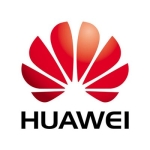How has it helped my organization?
It gave us a lot more peace of mind, because before we had a SAN solution that worked - it gave us the ability to have Microsoft SQL clusters for our treatment. This adds an extra layer of protection with the high availability, the multiple layers of redundancy, having SnapMirrors so we can replicate and do snapshotting. It's just given us a lot of peace of mind.
When you've got patient-data, you've got to make sure it's there.
Learn about the benefits of NVMe, NVME-oF and SCM. Read New Frontiers in Solid-State Storage.
What is most valuable?
Probably the biggest single thing would be the high availability options, because it's medical treatment, so it's got to be pretty much up - because we do treatment with it.
Performance is excellent. In fact, it's so fast that we're not really even taxing it all that much.
What needs improvement?
I don't know if I could come up with another feature. Of all the new hardware we bought for the new building, it's the only thing that we've yet to have any troubles with.
Maybe the reporting tools, the performance reporting tools. Performance is excellent. In fact, it's so fast that we're not really even taxing it all that much. I know they're getting better on that but I suppose that's one thing I'd improve.
What do I think about the stability of the solution?
It's been perfect. We haven't had anything wrong with it.
Learn about the benefits of NVMe, NVME-oF and SCM. Read New Frontiers in Solid-State Storage.
What do I think about the scalability of the solution?
I think it's excellent. We haven't scaled it up yet because it was a new system, so we haven't added to it. Actually, we did add a shelf to it, but it's awesome. You just plug things in and they go.
How are customer service and technical support?
Technical support has been excellent. Excellent. We've had our resident engineer who comes out all the time and assists us on things. We went to add that shelf in, he came up. We wanted to make sure we were doing things right, as in adding the disk in, and where to put it, and how to balance the system. He came right up there and helped us the better part of an afternoon, and just showed us things, and what to do.
It was great. Never a complaint.
Which solution did I use previously and why did I switch?
We were using Hewlett-Packard P2000s, and they were fine, but it was basically just a rack of disks that allowed us to do SAN solutions. They were actually pretty good, too. They didn't have the high availability features, and they couldn't do replication. They could do some snapshotting, but it was nothing like what we have now.
What happened is, it was kind of an end-of-life, they were getting real old, long in the tooth, and we needed more room. When the entire enterprise looked at vendors, they had brought on NetApp. When we looked at it, we thought, "This is great," and here we are. That's why we bought it. It just filled in. It did everything we needed it to do.
We've been extremely impressed with NetApp. I like the interface. I like all the tools they give us. The support is incredible. Our rep is awesome.
Which other solutions did I evaluate?
Hewlett-Packard, again, was one. EMC, because we do actually have some EMC stuff. And NetApp. That was basically our list. I think IBM was in there for a little while, but I think they kind of fell off. I remember hearing about it, but I didn't know anything about it. That was our short list.
What other advice do I have?
Our primary use case for the All Flash FAS is medical data storage. We use it for both block storage and file storage at the moment.
We're more than "likely" to consider NetApp for mission critical storage systems. It's already mission critical. This is cancer treatment. That's what it's doing.
Our most important criteria when selecting a vendor are support, features, and support. Can I say one twice? Because I know in healthcare, if something goes wrong, and we can't get it back up and running, patients are affected. If cancer treatments stop, it's really bad. Or somebody's mistreated? The feds come out, and it's a criminal kind of thing, so we've got to make sure that nothing goes wrong. So, I'd say support twice.
My advice to someone researching a similar product would probably be pay attention to growth, scalability. That was probably the other big thing with our P2000s. There was no way to scale. If we wanted to do something, we had to buy a whole other product. Once we ran out of room on that one thing, we had to basically look for something else. You have to do a data transfer. With the NetApps, we can just add on these racks of disks, and scale out with more controllers. I'd say that's it. Just make sure you pay attention to growth, and things like that.
Disclosure: My company does not have a business relationship with this vendor other than being a customer.











